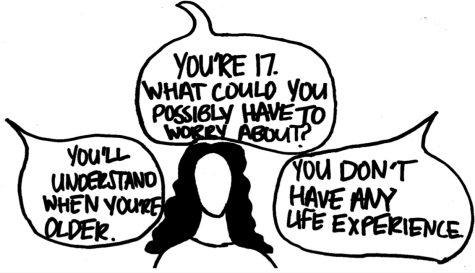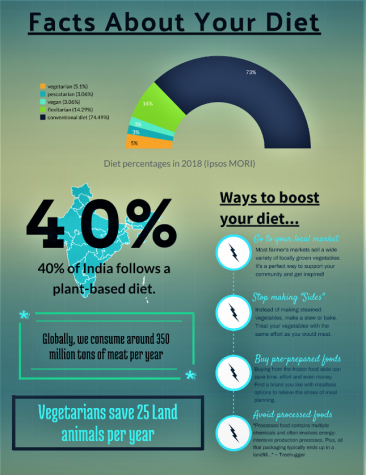Diets don’t work: why we need to stop ignoring the damage diet culture does

Photo credit: Amelia Nowicki
January 29, 2021
Every January, many people have some sort of goal to “fix” themselves in the New Year by losing thirty pounds or starting a new exercise program to get a flat stomach. However, it seems that countless people have the same resolutions each new year, showing that they’ve been mostly unsuccessful in achieving their goals in years past.
According to the Independent, the average person will attempt nearly 130 diets in their lifetime, which amounts to around two diets per year. Clearly, there is an issue with our society’s approach to and view of a “healthy lifestyle” if people are spending their lives dieting over and over again.
Restricting and eliminating foods such as sugar, fat and carbohydrates seems to be the cornerstone of many diets. The ever-popular ketogenic diet involves participants severely limiting their carbohydrate consumption to just 20 to 30 grams, and consuming often upwards of 100 grams of fat per day. It works by placing your body in a state of ketosis, where you burn fat for energy instead of carbohydrates. Participants often lost weight quickly, but according to Harvard Medical School, it can cause several adverse health effects, including high cholesterol and liver and kidney problems.
In addition, the diet is often very unsustainable for most people since it’s highly unlikely that one will go without consuming carbohydrates for the rest of their lives. This inevitable cycle can lead them directly to gaining back the weight they lost as they move away from the high-fat, low-carb diet.
There are hundreds of diet programs and products that deceive consumers into thinking that it will help them “shred fat.” We’ve all seen the shelves of magazines by checkout lines in grocery stores spouting claims like, “Lose 20 pounds in a week by eating soup!” All of these products, claims and programs are all just a part of the 78 billion dollar diet industry, which makes money by providing “quick fixes” to keep customers coming back for more and exploiting the insecurities people have about themselves, especially young women.
Between societal pressures and advertisements from mass media, young girls’ body image issues and disordered eating can be severe. We’ve grown up with social media being our main source of information, and at a younger age it’s incredibly difficult to discern true information from false. Sites like Tumblr were breeding grounds for eating disorders, convincing young girls that there was something wrong with their bodies if they weren’t thin enough in some places or not full enough in others.
On platforms like Tumblr, many fall down the traps of disordered eating as they’re often disguised as “weight loss tips.” Replacing meals with chewing gum and water and eating Gerber snacks made for babies and toddlers as a way to “slim down,” are just two examples of these dangerous rabbit holes.
However, social media isn’t the only thing at fault. Parents and other family members often cause qualms in young people about their bodies by making comments in “good faith” and encouraging “healthy habits.” Let’s get this straight: having your fifth grade child join Weight Watchers, commenting on how their stomach looks from a young age or any other form of shaming is not “looking out” for them. Of course, there’s mostly nothing wrong with having concerns about their health, however it’s much more beneficial to take up those concerns with a pediatric dietitian or promote healthier habits as a family, like providing well-rounded food options for everyone or doing physical activity together.
Although diet culture can be useless in terms of making sustained changes with your health, there’s still ways to lose weight healthily. The only true way to lose weight is a calorie deficit, or eating less calories than you burn in a day, and calorie calculators like this one from Mayo Clinic can help you figure out how many calories you should be consuming in a day. Figuring out how many calories you should be eating and how many are in the foods you often eat can be helpful when first starting out to lose weight.
However, calorie counting can sometimes be tiring after a while, so making lifestyle changes such as incorporating more fruits, vegetables and whole grains into your diet, and having a source of carbohydrates, fat and protein in each meal will help you stay fuller for longer. The United States Department of Agriculture dietary guidelines contain recommendations surrounding how to eat and what to incorporate into a healthy diet, and the benefits of doing so.
In 2021, instead of zeroing in on temporary measures such as losing 20 pounds or doing Whole30, focus on making more permanent changes that benefit your health as a whole. Eating more whole foods will lead you to eating less preservatives and additives, and getting exercise in can help improve your mood as well your heart function. Ultimately, what’s most important is nourishing your body and concentrating on changes that help you not just look better, but feel better.












